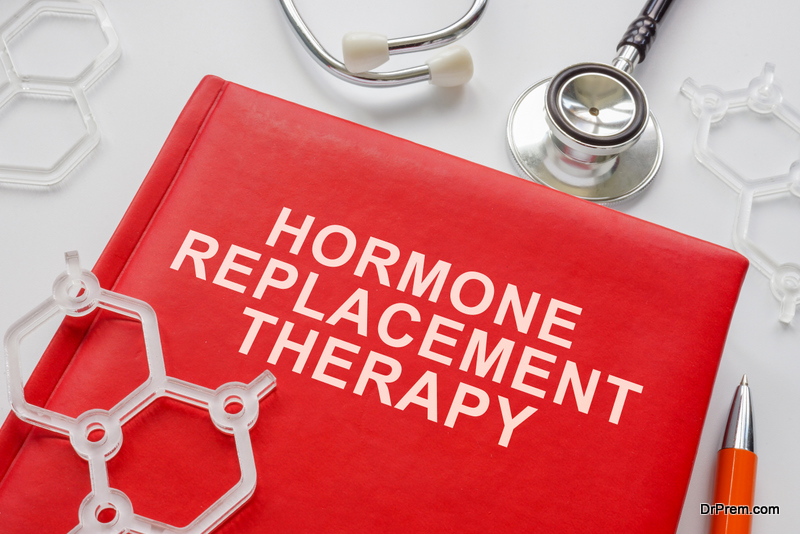The human body is a marvel of intricate systems and processes, with hormones playing the role of silent directors. However, as we age or undergo certain medical conditions, these hormonal symphonies may become imbalanced. Enter the world of Hormone Replacement Therapy (HRT). Let’s journey together to understand the what, why, and how of this fascinating medical intervention.
Hormones: The Unseen Maestros
Before delving into HRT, let’s appreciate the invisible maestros – hormones. These tiny molecules, produced by our endocrine glands, travel through the bloodstream, dictating everything from our mood, growth, metabolism to reproductive processes.
What is Hormone Replacement Therapy?
HRT, in simple terms, is the supplementation of hormones to replace or augment dwindling natural levels. The therapy aims to restore balance, alleviating symptoms caused by hormonal imbalances or deficiencies.
Who Needs HRT?
The most common candidates for HRT are:
- Menopausal Women: As women approach menopause, their estrogen and progesterone levels drop, leading to symptoms like hot flashes, night sweats, mood swings, and reduced bone density. HRT can help alleviate these symptoms.
- Individuals with Hypothyroidism: People with an underactive thyroid gland might not produce adequate thyroid hormones. HRT can restore levels to normal.
- Transgender Individuals: For those transitioning genders, HRT plays a crucial role in bringing about desired physical and psychological changes.
- Others with Hormonal Deficiencies: Certain conditions or treatments (like radiation) can affect hormone production. HRT can bridge this gap.
Types of HRT
- Estrogen-only Therapy (ET): Typically for women who have had a hysterectomy.
- Combined HRT: Contains both estrogen and progesterone, ideal for women who still have their uterus.
- Tibolone: A synthetic hormone resembling estrogen and progesterone.
- Low-dose Vaginal Products: These contain estrogen and focus on alleviating vaginal and urinary symptoms.
Benefits of HRT
- Symptom Alleviation: Whether it’s the disruptive hot flashes in menopausal women or fatigue from thyroid imbalances, HRT can bring much-needed relief.
- Bone Health: HRT can prevent bone thinning, reducing the risk of fractures in postmenopausal women.
- Improved Quality of Life: By addressing sleep disturbances, mood fluctuations, and other symptoms, HRT can significantly enhance overall well-being.
Considerations and Risks
No medical treatment is without its considerations:
- Cancer Risk: Prolonged use of HRT, especially combined therapy, may slightly elevate the risk for breast cancer. It’s crucial to discuss these risks with your healthcare provider.
- Blood Clots: There’s a minimal increased risk of developing blood clots with oral HRT.
- Heart Disease: The connection between HRT and heart disease is complex and might depend on factors like age and general health.
Finding the Right Balance
Opting for HRT is a personal decision that should be made in tandem with a trusted healthcare provider. It’s essential to:
- Evaluate Personal Risks: Everyone’s medical history is unique. Understanding your individual risks will guide your HRT journey.
- Regular Monitoring: Once on HRT, consistent check-ups ensure you’re on the right track.
- Stay Informed: Research on HRT is ongoing. Staying updated can help you make informed choices.
Concluding Notes
Hormone Replacement Therapy, while not a panacea, offers respite to many grappling with the challenges of hormonal imbalances. Like all medical treatments, it’s about weighing the benefits against potential risks, ensuring you’re making the best choice for your well-being.
Article Submitted By Community Writer




